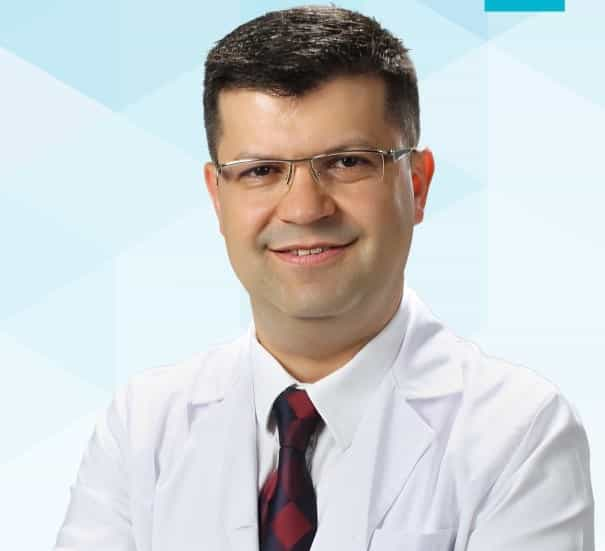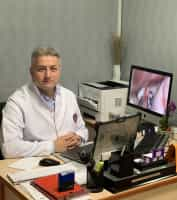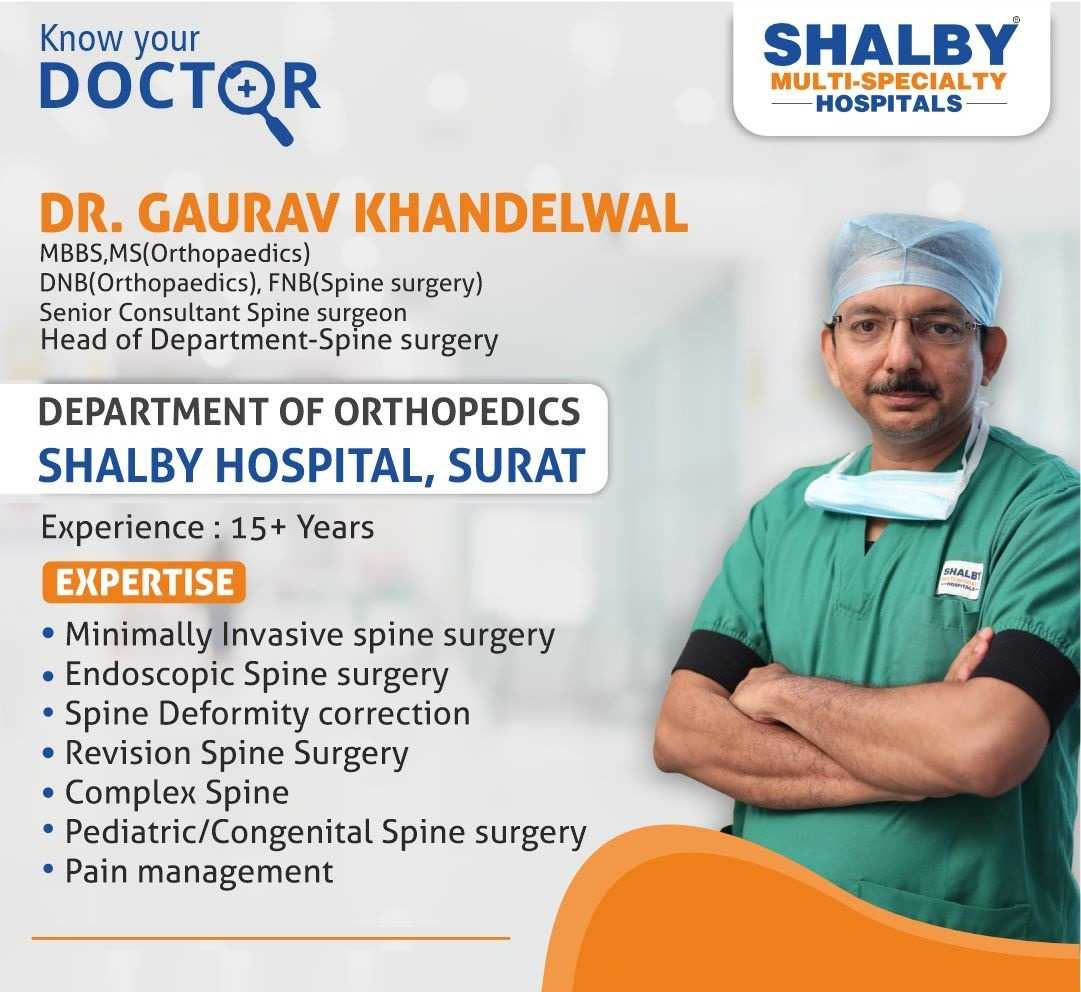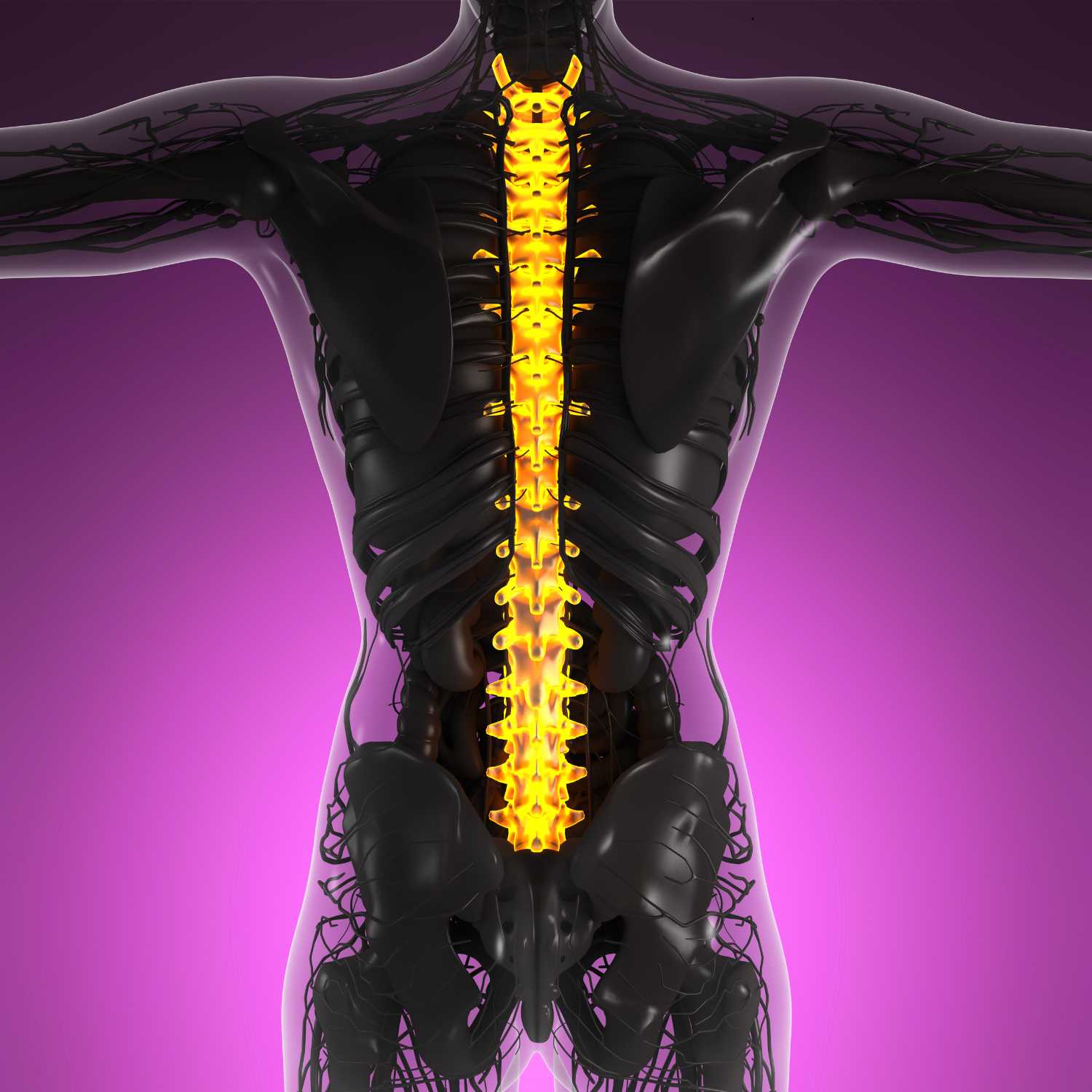
Spine care surgery addresses a range of conditions from chronic pain to complex deformities, with advancements in techniques and global accessibility making it a viable option for many. Selecting a highly skilled surgeon and understanding the journey from preparation to recovery are crucial for optimal outcomes.
Spinal health is fundamental to overall well-being, and when conservative treatments for back and neck pain fail, spine surgery can offer life-changing relief. The field of spine care surgery has seen remarkable advancements, including minimally invasive techniques, robotic-assisted procedures, and innovative regenerative therapies like stem cell treatment. This guide provides an in-depth look into spine surgery, focusing on key aspects from procedures and recovery to cost considerations and where to find world-class expertise.
Key Takeaways
-
Cost Savings: Patients can often save significantly on spine surgery by choosing destinations like Turkey, India, and Mexico compared to Western countries.
-
Comprehensive Packages: Many international clinics offer all-inclusive packages covering surgery, accommodation, transfers, and post-operative care.
-
Specialized Expertise: The global landscape features highly specialized surgeons in areas like minimally invasive spine surgery, robotic surgery, and stem cell therapy for spinal cord injuries.
Average Cost of Spine Surgery by Country (USD):
-
Turkey: $2,000 – $16,000 (depending on procedure type and complexity)
-
India: $1,500 – $7,710 (for various procedures)
-
Mexico: $15,000 – $100,000 MXN (for specific procedures; roughly $800 - $5,500 USD at current exchange rates, but all-inclusive packages can start at $15,000 USD)
10 Best Spine Surgeons in the World
Choosing the right spine surgeon abroad is paramount for successful outcomes. The following specialists are globally recognized for their expertise, experience, and innovative approaches in spine care surgery.
1. Dr. Kayhan Turan
(Bursa, Turkey)

-
Specialty: Orthopedic Surgeon, Spinal Cord Injury Specialist, Robotic-Assisted Arthroplasty.
-
Dr. Turan is a leading figure in orthopedics and trauma, with over 25 years of experience. He is known for his pioneering work in robotic-assisted arthroplasty and offers minimally invasive treatments for spine injuries and conditions, ensuring precision and effective patient outcomes. His spine surgery clinic in Turkey, is equipped with state-of-the-art technology.
2. Dr. Murat Tiftikci
(Bursa, Turkey)

-
Specialty: Neurosurgeon, Spinal Cord Injury Specialist.
-
Dr. Tiftikci is an experienced neurosurgeon dedicated to complex neurological conditions and spinal cord injuries. His expertise in minimally invasive spine surgery leads to faster recovery times and reduced patient discomfort, utilizing advanced technologies for optimal care in Turkey.
3. Dr. Tolga Turan DÜNDAR
(Istanbul, Turkey)

-
Specialty: Neurological Surgeon.
-
Dr. Dündar is at the forefront of neurosurgery, specializing in minimally invasive procedures for spine care. He offers cutting-edge treatments for common ailments like back pain, herniated discs, and spinal stenosis in Istanbul, Turkey.
4. Dr. Himanshu Bansal
(India)

-
Specialty: Spinal Cord Injury Specialist, Stem Cell Therapy.
-
Dr. Bansal is a respected medical professional known for his specialization in stem cell therapy for spinal injuries. With extensive experience in regenerative medicine, he combines traditional and innovative approaches to provide effective treatments for complex spinal cord injuries and related conditions in India.
5. Dr. Gaurav Khandelwal
(Surat, India)

-
Specialty: Spinal Cord Injury Specialist, Minimally Invasive Spine Surgery.
-
As the head of spine surgery, Dr. Khandelwal is an expert in minimally invasive spine surgery, including endoscopic spine surgery and spinal deformity corrections. His modern surgical techniques aim to reduce pain and accelerate recovery times for patients in India.
6. Dr. Silver Balcazar FIPP, CIPS, ASRA-PMUC
(Tijuana, Mexico)

-
Specialty: Pain Intervention Specialist.
-
Dr. Balcazar specializes in comprehensive pain management and interventional techniques for chronic spine-related pain and working in his spine surgery clinic in Mexico. His expertise offers patients relief from debilitating conditions such as spinal stenosis and disc degeneration through non-surgical or minimally invasive approaches in Mexico.
7. Dr. Vidyadhara S.
(Bangalore, India)
-
Specialty: Robotic Surgery, Consultant Spine Surgeon.
-
Dr. Vidyadhara is a leading consultant spine surgeon specializing in robotic-assisted surgeries. His innovative approach prioritizes precision and patient safety, offering treatments for spinal deformities, herniated discs, and traumatic spine injuries with faster recovery and minimal scarring in India.
8. Dr. Satish Rudrappa
(Bangalore, India)
-
Specialty: Neurology and Trauma Care, Spine Surgery.
-
Dr. Rudrappa is an expert in spine surgery and trauma care, providing comprehensive treatments for spine injuries, spinal deformities, and degenerative spine diseases. His advanced training in both neurology and spine surgery ensures holistic care for complex spine issues in India.
9. M. D. Daniel S. J. Choy
(San Benedetto del Tronto, Italy)
-
Specialty: Neurosurgery and Spine Surgery, Percutaneous Laser Disc Decompression (PLDD).
-
Dr. Choy is renowned for his pioneering work in percutaneous laser disc decompression (PLDD), a groundbreaking minimally invasive procedure for treating herniated discs. With decades of experience, he offers cutting-edge treatments for various spinal conditions in Italy.
10. M. D. Gian Paolo Tassi
(San Benedetto del Tronto, Italy)
-
Specialty: Neurosurgery and Spine Surgery, Minimally Invasive Techniques.
-
Dr. Tassi is a specialist in minimally invasive spine surgery, focusing on treating spinal disorders through advanced techniques like robotic and laser spine surgery. He is highly regarded for his precision and successful outcomes in managing complex spinal conditions in Italy.
Understanding Spine Care Surgery
Spine care surgery encompasses various procedures designed to alleviate pain, restore function, and stabilize the spine. These operations address issues ranging from nerve compression to structural deformities.
Spine care surgery is a broad medical discipline that focuses on diagnosing and treating conditions affecting the spinal column, spinal cord, and peripheral nerves. These conditions can result from degenerative disc disease, herniated discs, spinal stenosis, scoliosis, spondylolisthesis, compression fractures, and spinal tumors. The primary goals of spine surgery are typically to relieve pressure on nerves or the spinal cord (decompression surgery) and/or to stabilize the spine (spinal fusion or motion-preserving surgery).
Did You Know?
The earliest known recorded surgical procedure for a spinal injury dates back to ancient Egypt, described in the Edwin Smith Papyrus (circa 1600 BC), though modern spinal surgery as we know it only began to develop significantly in the 20th century.
Common Spine Procedures and Treatments
Various surgical techniques are employed to address specific spinal conditions, ranging from traditional open surgeries to advanced minimally invasive and regenerative approaches.
Modern spine surgery offers a spectrum of procedures tailored to individual patient needs and conditions. Advances in technology and surgical techniques have significantly improved outcomes and reduced recovery times for many patients.
Decompression Procedures
These surgeries aim to relieve pressure on the spinal cord or nerves, often caused by herniated discs, bone spurs, or narrowed spinal canals.
-
Laminectomy: This procedure involves removing a portion of the vertebral bone called the lamina to create more space for the spinal cord and nerve roots. It is commonly performed for spinal stenosis.
-
Microdiscectomy: A minimally invasive procedure to remove a herniated disc fragment that is pressing on a nerve. It often provides immediate relief from leg pain (radiculopathy).
-
Foraminotomy: Enlarging the opening (foramen) where a nerve root exits the spinal canal to relieve compression.
Stabilization Procedures
These procedures aim to fuse or stabilize segments of the spine, preventing painful motion and promoting spinal stability.
-
Spinal Fusion: This surgery involves joining two or more vertebrae together, typically using bone grafts and metal hardware (screws, rods, cages). The goal is to eliminate motion between the fused vertebrae, reducing pain and stabilizing the spine. Fusion can be performed using various approaches (e.g., Anterior Lumbar Interbody Fusion (ALIF), Posterior Lumbar Interbody Fusion (PLIF), Transforaminal Lumbar Interbody Fusion (TLIF), Extreme Lateral Interbody Fusion (XLIF)).
-
Artificial Disc Replacement (ADR): An alternative to spinal fusion for select patients, ADR involves replacing a damaged disc with an artificial one. This procedure aims to preserve motion at the treated spinal segment, potentially reducing the risk of adjacent segment disease.
Advanced and Innovative Treatments
Beyond conventional surgery, innovative techniques and therapies are emerging, offering new hope for complex spinal conditions.
-
Minimally Invasive Spine Surgery (MISS): These techniques utilize smaller incisions, specialized instruments, and imaging guidance to minimize muscle damage, blood loss, and post-operative pain. MISS procedures include microdiscectomy, minimally invasive laminectomy, and various fusion techniques (e.g., MIS TLIF, XLIF).
-
Robotic-Assisted Spine Surgery: Robots assist surgeons in precisely placing screws and implants during fusion procedures, enhancing accuracy and potentially reducing surgical time and radiation exposure.
-
Stem Cell Therapy: Particularly for spinal cord injuries, stem cell therapy involves injecting stem cells into the affected area with the aim of promoting regeneration and repair of damaged nerve tissue. While still largely experimental for full recovery, it offers promising avenues for improving neurological function and reducing chronic pain.
Candidacy for Spine Surgery
Deciding on spine surgery is a significant step, and it's generally considered when non-surgical treatments have failed to provide adequate relief for specific, diagnosable conditions.
Not everyone with back or neck pain is a candidate for spine surgery. Surgeons typically recommend surgery as a last resort, after conservative treatments such as physical therapy, medication, injections, and lifestyle modifications have been exhausted without sufficient improvement. Ideal candidates often have:
-
Persistent pain that significantly impacts quality of life.
-
Diagnosable structural issues in the spine (e.g., herniated disc, spinal stenosis, spondylolisthesis, spinal deformity) confirmed by imaging studies (MRI, CT scan).
-
Neurological deficits such as weakness, numbness, or tingling in the limbs, indicating nerve compression.
-
Good overall health to tolerate the surgery and recovery process. Underlying conditions like uncontrolled diabetes or heart disease might affect candidacy.
-
Realistic expectations about the outcomes of surgery and commitment to the post-operative rehabilitation process.
Expert Insight:
"The decision for spine surgery is highly individualized. We carefully evaluate each patient's symptoms, imaging, and response to conservative treatments. Our goal is always to achieve the best possible outcome with the least invasive approach necessary." - Dr. Kayhan Turan, Orthopedic Surgeon, Spinal Cord Injury Specialist.
Risks and Complications of Spine Surgery
Like any surgical procedure, spine surgery carries potential risks, though advancements in techniques have significantly reduced their incidence.
While spine surgery can be highly effective, it's important for patients to be aware of potential risks, which include:
-
Infection: At the surgical site or in the spinal column.
-
Bleeding: During or after surgery.
-
Nerve damage: Leading to new or worsened numbness, weakness, or pain.
-
Anesthesia risks: Reactions to anesthetic agents.
-
Spinal fluid leak (CSF leak): Though often self-healing, it can cause headaches and requires careful management.
-
Failure to fuse (for fusion surgeries): The bones may not heal together, requiring further surgery.
-
Adjacent segment disease: Increased stress on the spinal segments above or below a fusion, potentially leading to future problems.
-
Blood clots: In the legs (DVT) or lungs (PE).
Modern surgical techniques and strict protocols are in place to minimize these risks. Your surgeon will discuss these in detail during your consultation.
Preparation for Spine Surgery
Proper preparation before spine surgery is crucial for optimizing outcomes and ensuring a smoother recovery.
Preparing for spine surgery involves several steps to ensure you are in the best possible condition for the procedure and subsequent recovery:
-
Medical Evaluation: Comprehensive pre-operative tests, including blood work, imaging, and cardiac evaluation, to assess overall health.
-
Medication Review: Discuss all medications, supplements, and herbal remedies with your doctor. You may need to stop certain medications (e.g., blood thinners) before surgery.
-
Smoking Cessation: If you smoke, quitting or significantly reducing smoking is vital, as it can impair healing, especially in spinal fusion procedures.
-
Diet and Nutrition: Maintain a healthy, balanced diet. Your doctor might recommend specific nutritional guidelines or supplements.
-
Physical Conditioning: Gentle exercises or physical therapy may be recommended to strengthen core muscles and improve flexibility, which can aid in post-operative recovery.
-
Home Preparation: Arrange for assistance at home during your initial recovery, and ensure your living space is set up for easy movement and accessibility (e.g., removing tripping hazards, having essential items within reach).
-
Mental Preparation: Understanding the procedure, recovery process, and potential outcomes can help manage anxiety and set realistic expectations.
Recovery and Aftercare
The recovery period after spine surgery varies depending on the type of procedure and individual patient factors, but generally involves a structured rehabilitation plan.
Recovery from spine surgery is a gradual process that requires patience and adherence to medical advice.
-
Hospital Stay: Typically 1-5 days, depending on the complexity of the surgery. During this time, pain management, early mobilization, and wound care are priorities.
-
Pain Management: You will be prescribed pain medication to manage discomfort. Follow your doctor's instructions carefully.
-
Physical Therapy: A crucial component of recovery, physical therapy helps regain strength, flexibility, and mobility. This may begin in the hospital and continue as an outpatient program.
-
Activity Restrictions: You will have specific restrictions on bending, lifting, and twisting (BLT precautions) to protect your spine. Driving may also be restricted for several weeks.
-
Wound Care: Keep the incision site clean and dry. Watch for signs of infection such as increased redness, swelling, discharge, or fever.
-
Return to Activities: Light activities like short walks can usually be resumed within a few weeks. Return to work and more strenuous activities will depend on your specific surgery and recovery progress, often taking 3-6 months for more extensive procedures like spinal fusion, and up to a year for full recovery.
Did You Know?
For spinal fusion patients, it can take anywhere from 3 to 12 months for the bones to fully fuse. Adhering to post-operative instructions, especially regarding activity restrictions and physical therapy, is crucial for successful fusion.
Alternatives to Spine Surgery
For many spinal conditions, non-surgical treatments are the first line of defense, offering effective relief without the need for an operation.
Before considering spine surgery, a wide array of conservative, non-surgical treatments are typically explored:
-
Physical Therapy: Exercises to strengthen core muscles, improve posture, flexibility, and alleviate pain.
-
Medication: Over-the-counter pain relievers, NSAIDs, muscle relaxants, or neuropathic pain medications.
-
Injections: Epidural steroid injections, nerve blocks, or facet joint injections to reduce inflammation and pain.
-
Chiropractic Care and Manual Therapy: Hands-on techniques to improve spinal alignment and reduce musculoskeletal pain.
-
Acupuncture: A traditional Chinese medicine technique that may help with pain relief.
-
Lifestyle Modifications: Weight management, ergonomic adjustments, and regular low-impact exercise (e.g., swimming, walking).
-
Bracing: Temporary use of back braces to provide support and limit motion during painful episodes.
-
Regenerative Medicine: Platelet-Rich Plasma (PRP) or stem cell injections (less invasive than surgical stem cell procedures) for certain degenerative conditions, aiming to promote tissue healing.
Cost of Spine Surgery Worldwide
The cost of spine surgery can vary significantly based on the country, the complexity of the procedure, the surgeon's fees, hospital charges, and whether it's an all-inclusive package.
Medical tourism offers a viable option for many seeking high-quality spine care surgery at a more affordable price than in their home countries. Countries like Turkey, India, and Mexico have become popular destinations due to their advanced medical facilities, experienced surgeons, and competitive pricing.
Note: Prices are estimates and can vary based on specific clinic, surgeon, medical complexities, and what's included in the package (e.g., accommodation, transfers, physiotherapy). All-inclusive packages in Mexico for spine surgery can start from $15,000.
Frequently Asked Questions (FAQs) about Spine Surgery
Q1: What are the primary reasons for spine surgery?
A1: Spine surgery is primarily considered for conditions that cause persistent pain, neurological deficits (like numbness or weakness), or spinal instability, and have not responded to conservative treatments. Common reasons include herniated discs, spinal stenosis (narrowing of the spinal canal), degenerative disc disease, spondylolisthesis (vertebrae slipping forward), spinal deformities like scoliosis, and compression fractures.
Q2: Is spine surgery always a last resort?
A2: Yes, typically, spine surgery is considered a last resort after all non-surgical treatments have been exhausted. This includes physical therapy, medication, injections, and lifestyle modifications. The decision to proceed with surgery is made after a thorough evaluation and discussion between the patient and surgeon.
Q3: What is the difference between spinal decompression and spinal fusion?
A3: Spinal decompression aims to relieve pressure on nerves or the spinal cord by removing bone or disc material, while spinal fusion aims to stabilize the spine by permanently joining two or more vertebrae together. Decompression procedures include laminectomy and microdiscectomy, while fusion uses bone grafts and hardware.
Q4: How long does recovery from spine surgery take?
A4: Recovery time varies significantly depending on the type of surgery and individual factors. For minimally invasive procedures like microdiscectomy, recovery can be a few weeks to a few months. For more extensive procedures like spinal fusion, it can take 3 to 6 months for initial recovery and up to a year for full healing and return to all activities.
Q5: Can I get minimally invasive spine surgery for any condition?
A5: While minimally invasive spine surgery (MISS) offers many benefits, it is not suitable for all spinal conditions. Its applicability depends on the specific diagnosis, the extent of the problem, and the surgeon's expertise. Complex deformities or severe instability may still require traditional open surgery.
Q6: What should I consider when choosing a spine surgeon abroad?
A6: When choosing a spine surgeon abroad, consider their specialization, experience with your specific condition, hospital accreditation, patient testimonials, and the comprehensiveness of their treatment packages. It's also important to ensure clear communication channels and aftercare plans.
Q7: Are all-inclusive medical tourism packages for spine surgery worth it?
A7: All-inclusive packages can be highly beneficial, offering cost savings and convenience by bundling medical procedures, accommodation, transfers, and sometimes even post-operative care and translation services. They simplify the logistical aspects of traveling for medical treatment.
PlacidWay: Your Partner in Global Spine Care
At PlacidWay, we understand that navigating the complexities of spine care surgery and international medical travel can be overwhelming. We partner with world-renowned hospitals and highly skilled spine surgeons in top medical tourism destinations like Turkey, India, and Mexico, ensuring you receive the best possible care.
Our goal is to connect you with high-quality, affordable spine surgery options tailored to your specific needs. From initial consultation and treatment planning to travel logistics and post-operative support, PlacidWay offers comprehensive services to make your medical journey seamless and stress-free.
Ready to explore your spine care options?
Contact PlacidWay today for a free consultation and personalized quote.




.png)




.png)









Share this listing